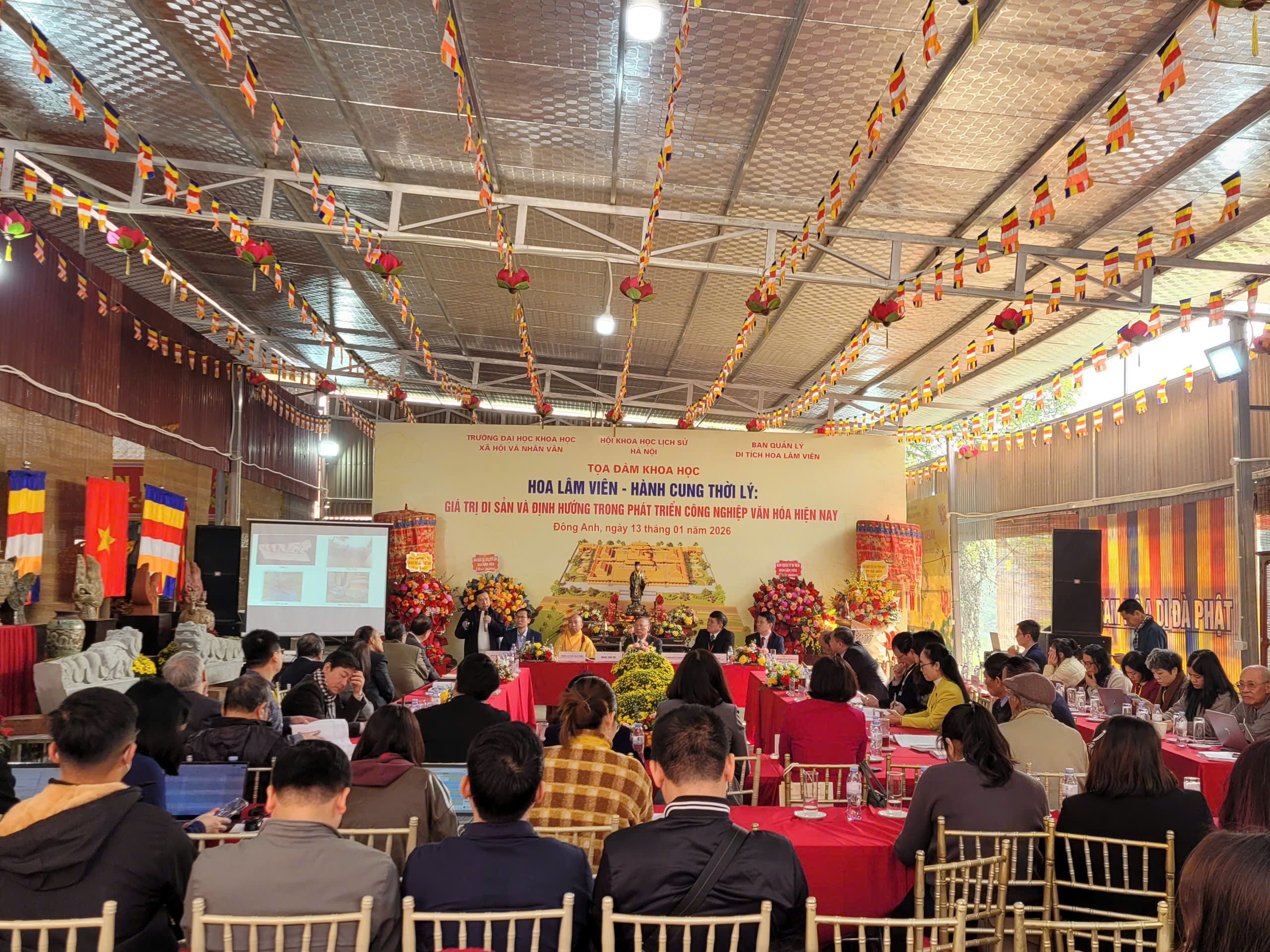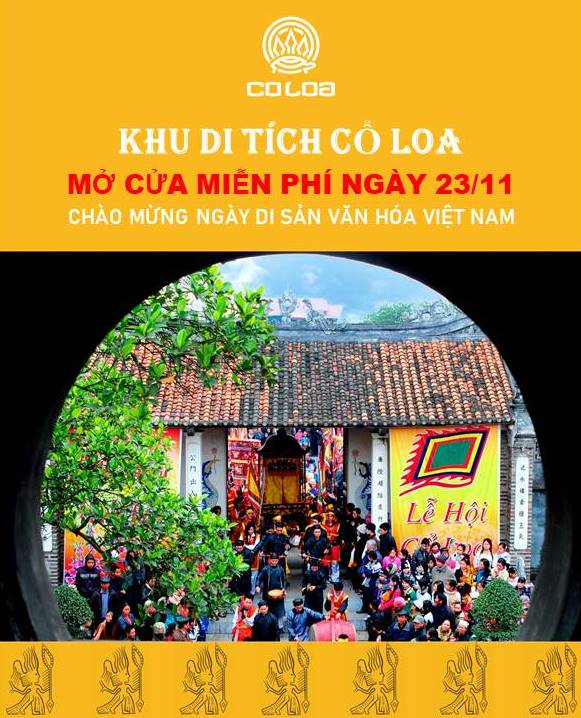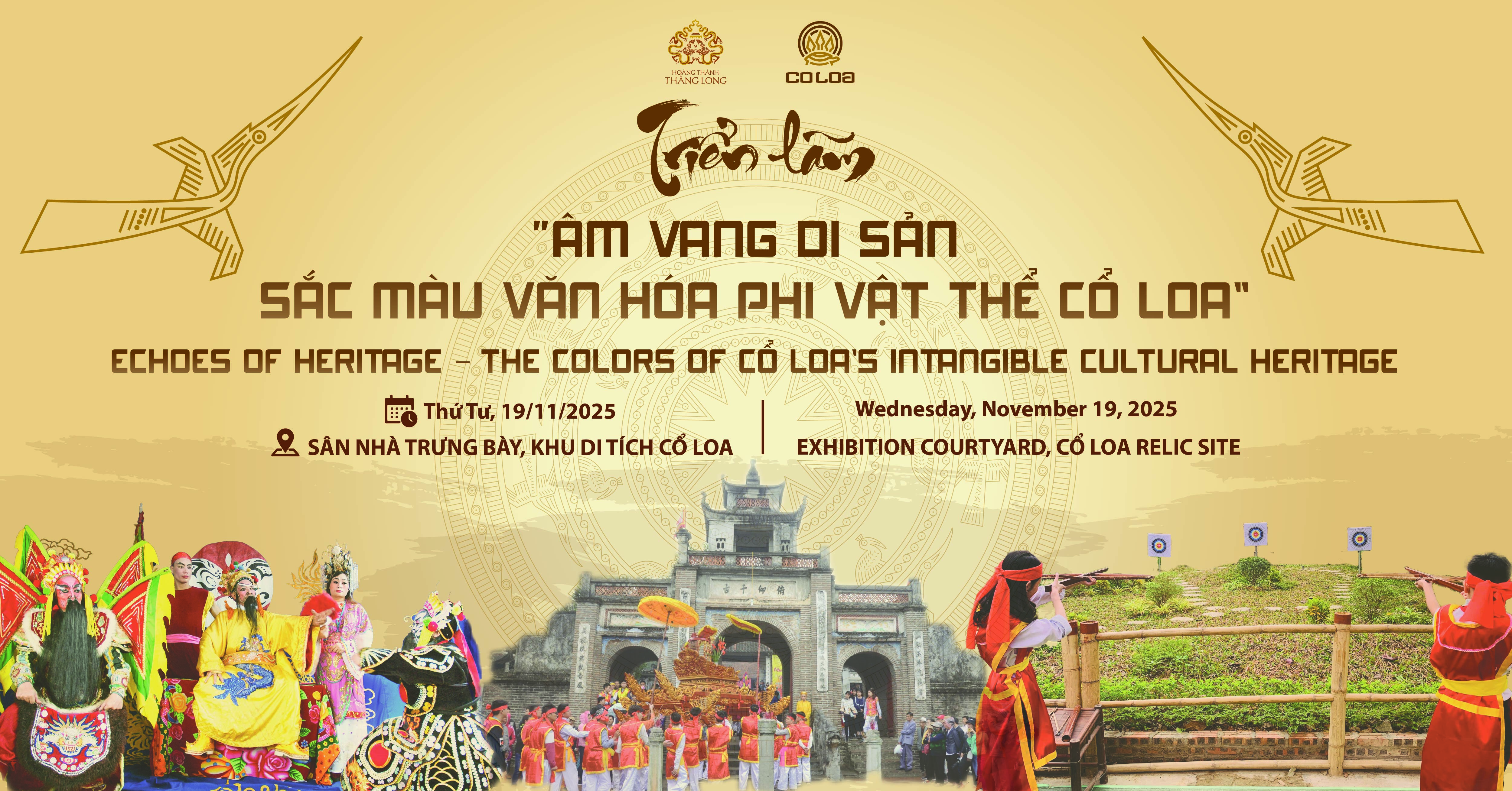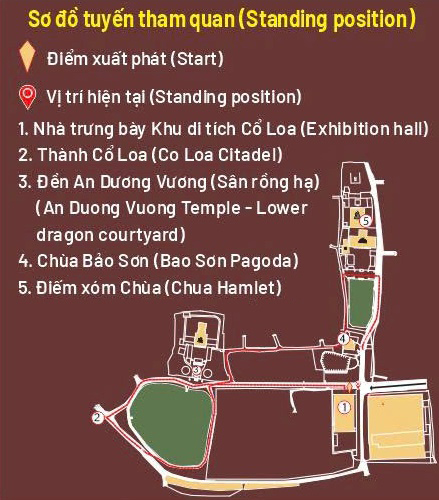
On December 31, 2020, the Co Loa mold collection was recognized as a national treasure in Decision No. 2283/QD-TTg of the Prime Minister.
In 2004, the Institute of Archeology, in collaboration with the Management Board of Hanoi Monuments and Scenic Areas, exploration and excavated archaeological excavations before restoring the Thuong temple relic, revealing the bronze furnace relic (three-sided bronze copper arrow). This is an important and valuable new discovery to decipher the secret of the legendary crossbow in the An Duong Vuong period. In 2006 and 2007, the Center for Conservation of Co Loa - Ancient Citadel (now Thang Long - Hanoi Heritage Conservation Center) continued to coordinate with the Institute of Archeology to excavate at Thuong Temple. They discovered a system of traces of copper furnaces and many stone arrow molds.

Bronze molds location discovered
The Co Loa mold collection was discovered along with the remains of the foundry. Inside the foundry, the structure of the pipeline leading to the furnace is clearly visible, and the remnants of coal ash are still dense. Around the place where the furnace is located, where there are intact molds, broken molds, mold sketches, scraps, waste left in the mold making process and many raw materials for mold making and casting furnaces are copper arrows, copper slag and cooking pot pieces. The date identified by archaeologists as belonging to the Co Loa cultural class (equivalent to the Dong Son culture period - early Iron Age) is the III - II centuries BC, the same period with An Duong Vuong period, Au Lac state. There are a total of 11 stone molds, specifically 10 three-sided arrow molds and one swallow-shaped javelin. It is made from a soft, fine-grained stone (sandstone), and very suitable for molding. These are original and unique artifacts, the only known discovery so far in Vietnam has special value and are honored as a proper noun: Co Loa bronze arrow.
 The inside, the outside and the drawing of the three-sided bronze arrow mold
The inside, the outside and the drawing of the three-sided bronze arrow mold
Out of 10 bearing three-sided bronze arrow molds, two have outer faces that are polished and engraved with inscriptions (Chinese characters). Thus, Au Lac state, An Duong Vuong period used Chinese characters to engrave on important artifacts (casting molds, bronze drums).

Kanji engraving mold

The stamped version (Chinese characters?) of the mold bearing the symbol 05Đ.H3.L4-3.F3:1. One word is translated: "God", writed: "臣", which roughly translates as: "Quan". The rest of the letters have not been deciphered.

The stamped version (Chinese characters) of the mold bearing the symbol 05Đ.H3.F3.L2:49. Phonetic: "Human", write: "人", translate as: "People".

Swallow-shaped javelin mold

The process of casting a three-point bronze arrow from a three-point mold

National treasure Co Loa casting collection is being managed and promoted at the Conservation of Co Loa department.








